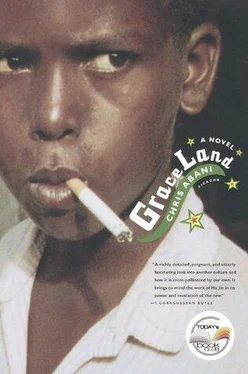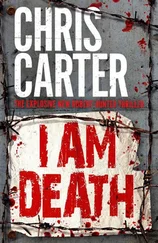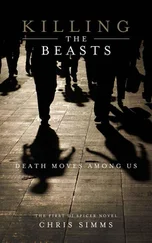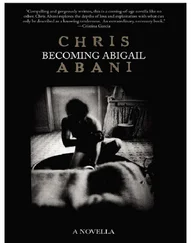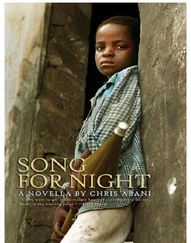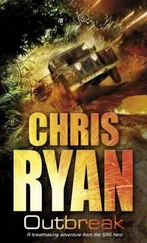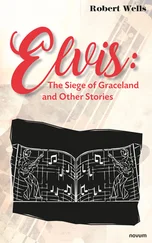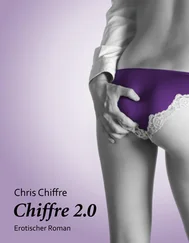“Who will run the country if the army steps down, then?” Elvis asked, stuffing a large piece of yam in his mouth and chewing noisily.
“Stop eating like a goat, lad. You have no manners,” Oye said. “Sunday, speak to your son.”
“Do what your grandmother says, boy, unless you want a beating.”
“Must you always threaten the lad, Sunday, eh?”
“I thought you wanted me to talk to him?”
“Talk. Not threaten.”
“Ah! Women!”
Elvis ate slowly, scrunched down in his seat, reading the back of his father’s paper.
“If civilians take over, will that be better?” Elvis asked nobody in particular.
Sunday Oke put down his paper, shoveled a piece of yam into his mouth, chewed contemplatively, then spoke:
“Good children do not concern themselves with adult problems.”
Elvis opened his mouth to speak, but Aunt Felicia got there first.
“Elvis, time to leave if you want me to walk you to school.”
As Elvis hurried out of the compound to join the other children streaming to school, he thought he saw Innocent lurking in the bushes outside. He looked unkempt, and even from a distance it was easy to see the blood on his clothes. Just then his father’s car nosed out of the gate, and Innocent vanished.
Voices, disembodied and distant, floated in to Elvis, waking him. He got up and stumbled outside to pee. The moon was full, washing everything in a white fluorescence. It was bright enough to see by, and he didn’t need the safety of the storm lantern he clutched in one hand while the other directed the piss stream away. Aunt Felicia’s nurse’s uniform, left out to dry overnight, flapped on the line, triggering his fear of ghosts. He scurried inside and hid under the covers.
The voices he heard earlier were still deep in conversation. They came from the parlor and meant his father had guests. He wondered who they were. Curiosity overcame his fear and he crept out into the dark corridor, heading as close to the curtained-off parlor door as he could. Light from the lanterns cracked through the gaps around the curtain; still, Elvis repeated the Lord’s Prayer softly to himself.
“We will cover all de campaign costs,” one of the men said. “It will cost you nothing.”
Another: “It is just dat you are de only one from dis town with a chance of winning. We really want a representative in de House of Assembly.”
“You have done it before. In de first republic”: still another.
The hand over his mouth smothered any screams, and the arm wrapped around him pinned his limbs tight. He was lifted bodily and carried down the corridor, fear locking him rigid. But Oye’s voice soothed him.
“You shouldn’t eavesdrop on conversations tha’ dinna include you,” she said, plunking him down on his bed. “Now sleep.”
“Come and vote for Chief Okonkwo and de People’s Party. De People’s Party is de party for de people and by de people, led by de people.”
The election campaigns had begun in earnest, Elvis noted as the van sprouting loudspeakers drove past the house.
“Where shall we put our mark? Next to de People’s Party! What shall we spit upon? All de other parties.”
The song was catching, and Elvis soon found himself repeating it. He hated when that happened. With a sigh, he returned to the paper. Reading the paper had begun as part of a homework assignment from Sunday. His initial resentment with the work was balanced by his happiness that his father was spending time with him, even if it was to ask questions about what he had read. But now his pleasure was singular and he looked forward to it.
The editorial, about one of the presidential candidates, claimed that he held the key to the Atlantic Ocean and that if provoked, he could unlock the sea and flood the whole country. Elvis laughed out loud. He thought it might be funny if the sea actually did flood the country in a couple of days. That would surely freak out the newspaper’s editor.
“Elvis! Where is your father?” a woman asked him.
“I don’t know,” Elvis replied, wondering who she was.
“Elvis, do you know where your father kept de flyers for de rally?” a man asked him.
Elvis shrugged and headed for the peace of a tree branch. Shortly after his father resigned his position as superintendent of schools and announced his plans to run for office, their home became a madhouse of thugs and media and other nondescript hangers-on, and it seemed like Elvis could never find a moment for himself. The cost of politics meant that they were swamped by hundreds of people who come by for free food and drink and to offer their support or services. Oye managed to hold a circle of sanity, though. Her reputation as a witch frightened even the vicious thugs that Uncle Joseph had hired.
The campaigns were held during the Harmattan, which was Elvis’s favorite season. Chilly winds from the Sahara blew a fine red dust that clouded everything in a shimmering mist, making the air dry and harsh. Everyone went around with chapped lips, and in some extreme cases, cracked soles. But there were also the heady scent of dry grasslands, new discoveries, bush fires and Christmas.
Harmattan fell between December and January, when the sun burned the cool season into a crisp before February. It was the season of rest. The harvests were over, and the next planting season would not begin until April or May, when the rains returned. It was as if everyone were on a long siesta.
From his perch in the tree, Elvis could see clearly over the wall of the compound. The campaign truck was still visible, lurching down the potholed street to the small town square. The voice over the loudspeaker was distorted by the wind and the words were unintelligible, but loud nonetheless. He could also see a lot of adults lounging in the public square under huge umbrella trees. Well, he thought, the campaigners will have an audience.
Some children ran after the truck, lost in the cloud of dust it scoured up. They shouted and tried to jump onto the bumpers and running boards. He waited for the sound of tears that would announce the inevitable accident. Surprisingly, there was none.
The party truck had stopped in the square, but the group of adults seemed not to be listening. They were carrying on animated conversations or playing board games. Seeing that the commentator’s adulation for the candidates was getting them nowhere, a bunch of thugs climbed down from their perch on the roof of the truck and began to off-load heavy jute sacks from inside the truck. They then approached the nonchalant crowd.
From what Elvis could make out, they were handing out drinks, snack packets, money, T-shirts, bags, mugs and trays, all with slogans printed on them. The square had suddenly come alive with people jostling for the gifts. He dropped from his perch and ran out of the compound. If he hurried he might get a free T-shirt with an opponent’s slogan and photograph. That was bound to piss off his father, something that brought him immense pleasure.
By the time he got to the square, it was a melee of arms, legs and raised dust as adults shoved children aside for access to some token. All the time, the commentator was shouting over the noise, wild promises chasing the gifts: “Dis is from Chief Okonkwo, your candidate for Congress. Chief Okonkwo is an erudite son of de soil educated in de USA, and his money is uncountable. He does not want to join government for embezzling money but to dash you all money. Dis small sample will show you de riches and benefits you will enjoy by voting Chief Okonkwo for Congress.”
Suddenly the sky was full of the sound of a helicopter. The whoomping of the big bird drowned any commentary from below and held everyone’s attention as it swirled dust into every bodily orifice. Everyone stopped fighting, standing stock-still. Who knew if it was the police — or even worse, the army? Elvis noted real fear on some faces old enough to remember the reality of helicopter gunships from the war.
Читать дальше
